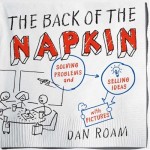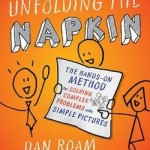Neurobics: Low-Effort Cognitive Stimulation!
 Neurobics is a unique approach to brain training developed from the latest findings in neurobiology. According to one popular approach, Keeping Your Brain Alive, the core idea is this:
Neurobics is a unique approach to brain training developed from the latest findings in neurobiology. According to one popular approach, Keeping Your Brain Alive, the core idea is this:
“Neurobic exercises use your five physical senses and your emotional sense in unexpected ways and encourage you to shake up your everyday routines. Neurobics don’t require paper and pen or isolating yourself with puzzles. Everyday life is the Neurobic Brain gym. They can be done anywhere, anytime in offbeat, fun and easy ways while you’re getting up, commuting, working, eating, shopping or relaxing. They are designed to help the brain manufacture its own nutrients that strengthen, preserve and grow brain cells.”
Some examples:
- Take a different route when commuting to work this morning
- Brush your teeth with the other hand
- Use just the sense of touch when unlocking a door (don’t look at the lock)
- Move your waste basket at work
- Sit someone different at the dinner table tonight
Tiny changes with a significant and positive neurochemical impact. Any exercise can be Neurobic as long as it involves your senses in a new context, demands attention and breaks routine. This means we can design our own! The Keep Your Brain Alive Program was developed by Larry Katz a well-known Duke University Neurobiologist and includes 83 very specific things to try.
Interested to hear from readers that do Neurobics. What exercises do you do and how have you built them into your daily routine?
Categories: Books, Cognitive Decline, Lifestyle, Manage Emotions, Mental Focus, Perception Tags: brain training, experiential learning
Does Raising a Child Make You Smarter?
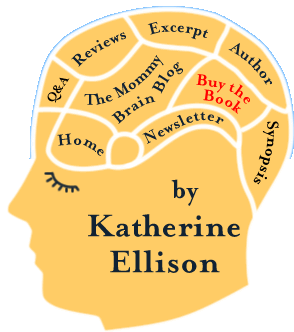 Absolutely, if you are the Mother! At least that is the argument made Katherine Ellison in her book the Mommy Brain: How Motherhood Makes Us Smarter.
Absolutely, if you are the Mother! At least that is the argument made Katherine Ellison in her book the Mommy Brain: How Motherhood Makes Us Smarter.
Motherhood gives a brain boost in many ways including face reading, multi-tasking, fearlessness, serenity, empathy, assertiveness and mental dexterity. These improvements in both IQ and EQ come from a combination of new hormones, motivation and practice that motherhood brings about.
The book is well founded in the latest neuroscience. It upends the stereotype of mothers checking their brains at the delivery room doors. Check out the Mommy Brain site by clicking on the graphic to the right.
Categories: Books, IQ and EQ, Lifestyle, Manage Emotions, Mental Focus, Parent, Perception Tags: embodied cognition, EQ
Audio CDs on Mindfulness – Do They Work?
 Mindfulness techniques are designed to bring us into the present moment as fully as possible. It involves paying attention on purpose and without judgment. Mastering this type of attentional focus has proven to be a gateway for higher cognitive performance.
Mindfulness techniques are designed to bring us into the present moment as fully as possible. It involves paying attention on purpose and without judgment. Mastering this type of attentional focus has proven to be a gateway for higher cognitive performance.
Several self-instruction techniques for doing mindfulness training have been covered in other posts on the Next Brain Blog. Unfortunately, it can be difficult for beginners to use such techniques on their own. It is best to work with an experienced guide. This can be expensive and inconvenient. One alternative is to try and get such guidance off a CD. But do they really help?
To find out I bought a copy of the audio book Mindfulness for Beginners. It is a $13 two-CD set prepared by Jon Kabat-Zinn a well known leader in the field. The first CD provides an overview of the foundations of mindfulness and the second walks you through five distinct mediations or training exercises. I listened to both CD and then practiced the mediation that seemed most interesting. Although the narration style took some getting use to, the coaching and just plain reassurance was key for making progress.
One point that was particularly important (for me at least) was coaching around what to do as your mind wanders during the mediation.
Dr. Kabat-Zinn was very clear that such wandering is fine. The goal is not to stop it but to gently bring your attention back to the present. You do this by refocusing your attention on the subject of the mediation – eating a rasin in my case – over and over again. Indeed, for the beginner, bringing your attention back to focus on the mediation is the point of the exercise. Bring it back enough times and focusing becomes a habit. I experienced a bit of that! Something I was not able to do working on my own with books.
 I was attracted to the eating mediation because the exercise walks you through looking at, feeling, smelling, hearing, salivating, chewing, swallowing and otherwise sensing a raisin. May sound a bit strange but I can see many uses in my design work for such direct sensory experience. My plan is to try the other mediations and then build one into my daily mind training routine.
I was attracted to the eating mediation because the exercise walks you through looking at, feeling, smelling, hearing, salivating, chewing, swallowing and otherwise sensing a raisin. May sound a bit strange but I can see many uses in my design work for such direct sensory experience. My plan is to try the other mediations and then build one into my daily mind training routine.
I am interested to hear from readers that can recommend other CDs for mindfulness training.
Categories: Books, Mental Focus, Perception, Training Tags: Buddhist, mindfulness
See Much Better By Thinking Differently
 Believe it or not your mindset has a big impact on how well your eyes work. The assumption that you should be able to see something or that you have excellent eye sight translates into improved visual performance scores. This fact was dramatically illustrated in a new research study, Vision Gets Better with the Right Mindset, reported in Science News.
Believe it or not your mindset has a big impact on how well your eyes work. The assumption that you should be able to see something or that you have excellent eye sight translates into improved visual performance scores. This fact was dramatically illustrated in a new research study, Vision Gets Better with the Right Mindset, reported in Science News.
“Eyesight markedly improved when people were experimentally induced to believe that they could see especially well, Langer and her colleagues report in the April Psychological Science. Such expectations actually enhanced visual clarity, rather than simply making volunteers more alert or motivated to focus on objects, they assert.”
I have seen similar studies concerning memory. If you really believe you have a great memory (or a very poor one) you do better (worse) on recall and recognition tests.
So how do you get the right mindset to achieve high-performance vision? One way may be to do some visual training and score well. You may want to check out, How Good are Your Visual Skills? There are a number of straight forward exercises and tests covering perception, tracking, focusing and eye teaming. For example, one of the perception test (figure ground) is shown in the picture above. Do you see the owl?
I am interested to hear from readers that have used specific techniques to develop affirming assumptions about their ability to see.
Source: Image of Pig
Categories: Perception, Training Tags: Mindset
Brain Training Software Fails Key Scientific Test
 Last year the BBC in collaboaration with leading neuroscientists conducted a large-scale scientific test of brain training software. They wanted to answer the question – does brain training software work?
Last year the BBC in collaboaration with leading neuroscientists conducted a large-scale scientific test of brain training software. They wanted to answer the question – does brain training software work?
The study recruited over 11,000 healthy adults of all ages and had them train their brains using software 3 times per week for 6 weeks. The results were negative.
Those that did the brain training showed no cognitive improvement beyond what you get from surfing the internet for the same period of time.
Scores on the tests provided by the brain training software did improve but none of that translated into better cognitive performance on tasks outside the software. This held up for a wide range of cognitive activities including reasoning, planning, problem-solving, short-term memory, attention, visual spatial processing and mathematics.
This is a landmark study that calls the relative effectiveness of brain trainig software into question. To quote the study:
 The results are truly amazing. The Brain Test Britain study found no evidence that the benefits of playing brain training games transfer to other brain skills. (However, the results do suggest that further research into brain trainers aged 60 and over is required. Dr Adrian Owen (pictured to the right) said: “The result is crystal clear. Brain training is only as good as spending six weeks using the internet. There is no meaningful difference.”
The results are truly amazing. The Brain Test Britain study found no evidence that the benefits of playing brain training games transfer to other brain skills. (However, the results do suggest that further research into brain trainers aged 60 and over is required. Dr Adrian Owen (pictured to the right) said: “The result is crystal clear. Brain training is only as good as spending six weeks using the internet. There is no meaningful difference.”
You can review the findings, look at the details behind the work and even play the games that were used for the training at UK Lab. They are continuing the study with participants that are 60 years and older.
I am interested to hear from readers that do regular software-based braining training exercises. What do you think of this study? Will it change your brain training routine?
Categories: Executive Function, Memory and Learning, Mental Focus, Perception, Software, Training Tags: brain training
A Store Just for Your Brain
 Marbles is a store just for your brain. They have four locations in Illinois and are looking to expand. Fortunately, their products are available online.
Marbles is a store just for your brain. They have four locations in Illinois and are looking to expand. Fortunately, their products are available online.
They offer an overview of brain fitness, a free self assessment and products to improve memory, critical thinking, coordination, word skills and visual perception. They provide books, brain software, toys and novelty items from many different vendors. Marbles takes the time to make gift bundles for the Wordsmith, Trickster, Creative Genius, Brainetics (whatever that is) and others. They offer some free Brain Coaching and sponsor a number of interesting events.
Marbles could well be a superstore for anyone looking to improve brain function and cognitive performance. They will be the subject of regular posts on the Next Brain Blog. I am interested to hear from readers that have visited one of the store locations.
Categories: Books, Cognitive Decline, Decision Making, Memory and Learning, Perception, Software, Training Tags: brain training, cognitive fitness
Fast, Free and Fun Cross-Training for Your Brain
 Crossword puzzles, a quick round of Sudoku, spot the difference, cryptograms or dozens of other short single-player games turn out to be a great way to improve memory, mental focus, problem solving ability and a host of other cognitive functions. They are a bit old school compared to the new brain games engineered on the latest neuroscience but research shows they can be just as effective!
Crossword puzzles, a quick round of Sudoku, spot the difference, cryptograms or dozens of other short single-player games turn out to be a great way to improve memory, mental focus, problem solving ability and a host of other cognitive functions. They are a bit old school compared to the new brain games engineered on the latest neuroscience but research shows they can be just as effective!
For a great collection of free, short and single player games and puzzles that will build your brain check out Smart Kit. The variety on this site is amazing. That is the key. You should be able to easily find one that is fun and when it gets boring there will be another waiting for you! The idea is to immerse yourself in a variety of short games and puzzles that cross-train your brain.
Interested to hear from readers that do any form of online cross-training for the brain. What products and sites do you use?
Categories: Memory and Learning, Mental Focus, Perception, Problem Solving, Software Tags: games
Build Problem Solving Skills with Visual Thinking
Drawing a diagram can be a powerful problem solving technique. Creating a visual representation forces our brain to process information in a specific way and it provides something new for us to see or perceive. Any technique, no matter how simple, that cause us to think differently and see differently holds the promise for improving problem solving and creativity.
Visual techniques designed to systematically stimulated improved thinking will be a frequent topic on the Next Brain Blog. Take for example, the recent work by Dan Roam. He has two books on on using visual thinking including The Back of the Napkin and Unfolding the Napkin.
His work is based on a four-step approach to visual thinking including look, see, imagine and show.
If you want to a jump-start on Roam’s approach to visual thinking, check out this 8-page BPTrends review of the Back of the Napkin.
I am interested to hear from readers that have used visual thinking techniques to improve problem solving, creativity or other aspects of cognition.
Categories: Books, Executive, Leader, Perception, Problem Solving, Professional, Software, Training Tags: creativity
Double Dip: Take A Ride on the Brain Bike
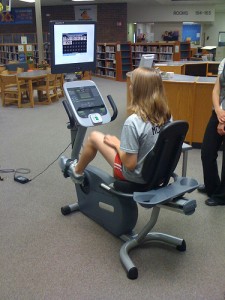 Physical exercise, especially cardio, is good technique for improving brain function. There is no doubt about that. So is specially designed cognitive training software that gives your brain a workout by solving problems, meeting perceptual challenges and even playing games. Imagine combining the two – exercising while working with cognitive training software – to get a double dose of brain training in a single session. That is exactly what the NeuroActive Bike does.
Physical exercise, especially cardio, is good technique for improving brain function. There is no doubt about that. So is specially designed cognitive training software that gives your brain a workout by solving problems, meeting perceptual challenges and even playing games. Imagine combining the two – exercising while working with cognitive training software – to get a double dose of brain training in a single session. That is exactly what the NeuroActive Bike does.
Combing their NeuroActive cognitive training software with an exercise bike the Brain Center of America is the first to introduce a brain bike.
They are available in some health clubs in France, the US and Canada. Here is a list. A few schools in the US are introducing them. For example, I found this story and photo (to the right) about Madison School in Naperville, Illinois.
I have not seen any studies on the effectiveness of this type of double dipping but will keep an eye out. In the meantime I am interested to hear from readers that have taken a ride on the Brain Bike.
Categories: Cognitive Decline, Lifestyle, Memory and Learning, Mental Focus, Perception, Software, Training Tags: brain training, cognitive fitness, exercise
How Fast Do You Think? Should You Care?
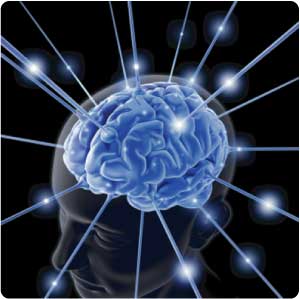 The speed at which your brain processes information is a fundamental measure of cognitive efficiency. Faster processing speeds have been linked to more effective intelligence, memory formation and even longevity. In short, the faster you think the smart you are! Happily, you can easily measure, and with practice improve, your thinking speed. Tools and techniques for increasing the speed of thought will be a frequent topic on the Next Brain Blog.
The speed at which your brain processes information is a fundamental measure of cognitive efficiency. Faster processing speeds have been linked to more effective intelligence, memory formation and even longevity. In short, the faster you think the smart you are! Happily, you can easily measure, and with practice improve, your thinking speed. Tools and techniques for increasing the speed of thought will be a frequent topic on the Next Brain Blog.
One way to get started is to take the Thinking Speed Test at Cognitive Labs. You need to go through a brief registration but it is worth it. They give you a short reaction time test and some handy feedback. You can even track your performance over time.
Try it out and post your results. Especially interested in what techniques you are using to improve it. My initial score was 241 milliseconds.
Source: Image of the Brain
Categories: IQ and EQ, Memory and Learning, Perception, Software, Training Tags: brain training, cognitive fitness, games, processing speed

